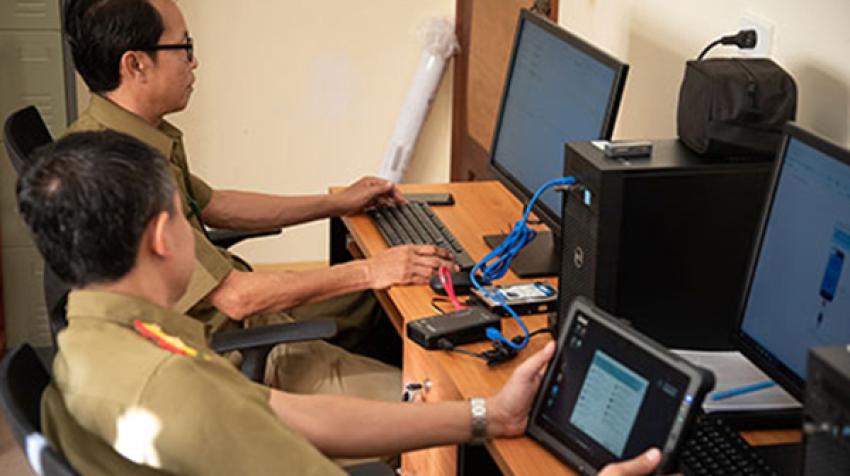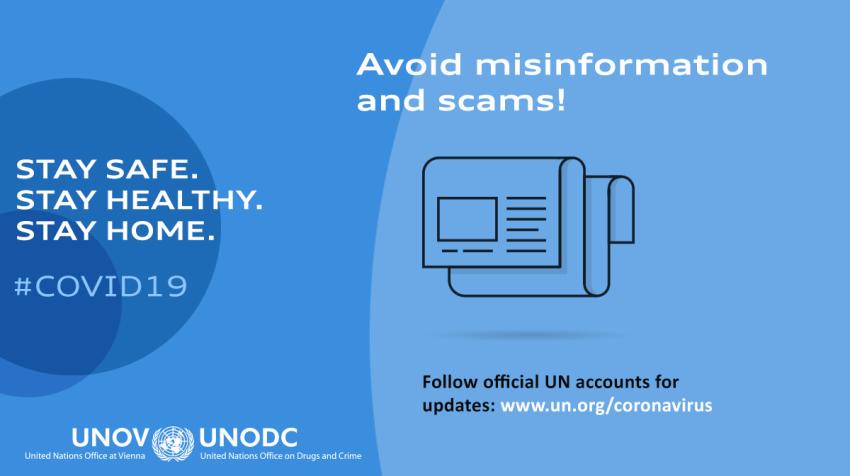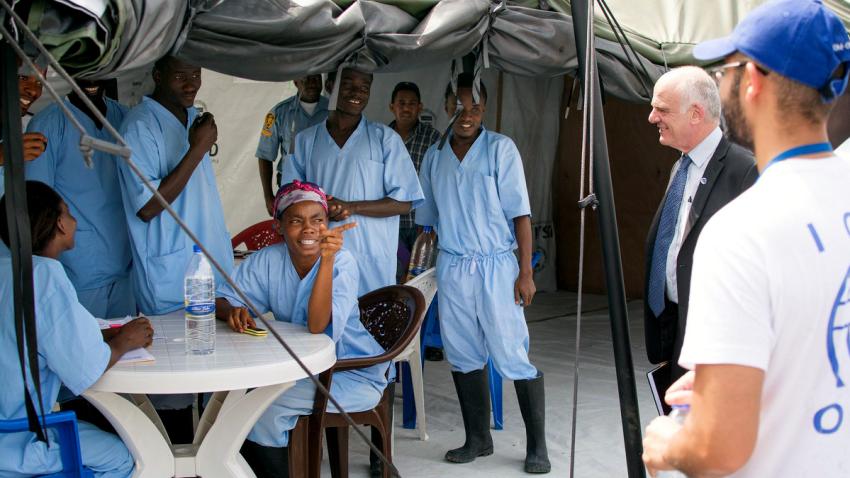31 March 2020 — From selling fake coronavirus cures online to a cyberattack on hospitals’ critical information systems, criminals are exploiting the COVID-19 crisis, the United Nations has warned, as it also steps up its fight against a proliferation of false information about the virus.
Our common enemy is #COVID19, but our enemy is also an “infodemic” of misinformation.
— António Guterres (@antonioguterres) March 28, 2020
To overcome the #coronavirus, we need to urgently promote facts & science, hope & solidarity over despair & division.https://t.co/FRluVQIvIP
“We’re not just fighting an epidemic; we’re fighting an infodemic,” said Tedros Adhanom Ghebreyesus, Director-General of the World Health Organization (WHO) at a gathering of foreign policy and security experts in Munich, Germany, in mid- February, referring to fake news that “spreads faster and more easily than this virus.”
WHO explains that infodemics are an excessive amount of information about a problem, which makes it difficult to identify a solution. They can spread misinformation, disinformation and rumours during a health emergency. Infodemics can hamper an effective public health response and create confusion and distrust among people.
In response, a team of WHO “mythbusters” are working with search and media companies like Facebook, Google, Pinterest, Tencent, Twitter, TikTok, YouTube and others to counter the spread of rumours, which include misinformation like that the virus cannot survive in the hot weather, that taking a high dose of chloroquine medication can protect you, and that consuming large quantities of ginger and garlic can prevent the virus.
These companies, according to news reports, are aggressively filtering out unfounded medical advice, hoaxes and other false information that they say could risk public health. In a rare move, Facebook and Twitter have taken down a post from a head of State that falsely stated that a drug was working everywhere against the coronavirus.
Criminals are also disguising themselves as WHO to steal money or sensitive information. (See scam alert from WHO)
Advice from Cybersecurity Expert
Neil Walsh, Chief, Cybercrime and Anti-Money Laundering Section, at the United Nations Office on Drugs and Crime (UNODC), advised that people should get information from trusted sources, such as the World Health Organization (WHO) and the United Nations. Furthermore, the United Nations family of agencies, funds, and programmes is a trusted source of authoritative Coronavirus-related information on many fronts. For further information please visit the UN Coronavirus disease (COVID-19) Portal.

In times of crises, cybersecurity is critically important, he stressed, adding that a huge number of people under lockdown or movement restrictions are now working and studying remotely, making them susceptible to cybercrime. Criminals could take hospitals offline and disrupt the work of the United Nations, he explained. He has seen an increase in incidents everywhere, cautioning against phishing emails with attachments and links.
Children could easily fall prey to cybercriminals as they often don’t distinguish the real and virtual worlds, he said, pointing to some materials to educate children against such risks. (See UNODC’s materials explaining cybersecurity to kids).
Despite the growing number of cybercrimes, acts of humanity are also emerging, Mr. Walsh said. After a hospital fell victim to ransomware, a small New Zealand cybersecurity company offered free recovery services to hospitals that are in the forefront of the fight against COVID-19.
Earlier today, Mr. Walsh, along with Thomas Braun of the Office of Information and Communications Technology at United Nations Headquarters in New York, gave a webinar to UN personnel on how to stay safe while working remotely.
In her recent Facebook post, Under-Secretary-General for Global Communications Melissa Fleming said: “We are not only fighting a ‘pandemic’, in the words of Dr. Tedros, who leads the World Health Organization (WHO), we are fighting an ‘infodemic’… My global communications team at the United Nations will be stepping up our communications efforts to make sure people have the best, most credible information and also inspiration from examples of global cooperation and viral acts of humanity.”




